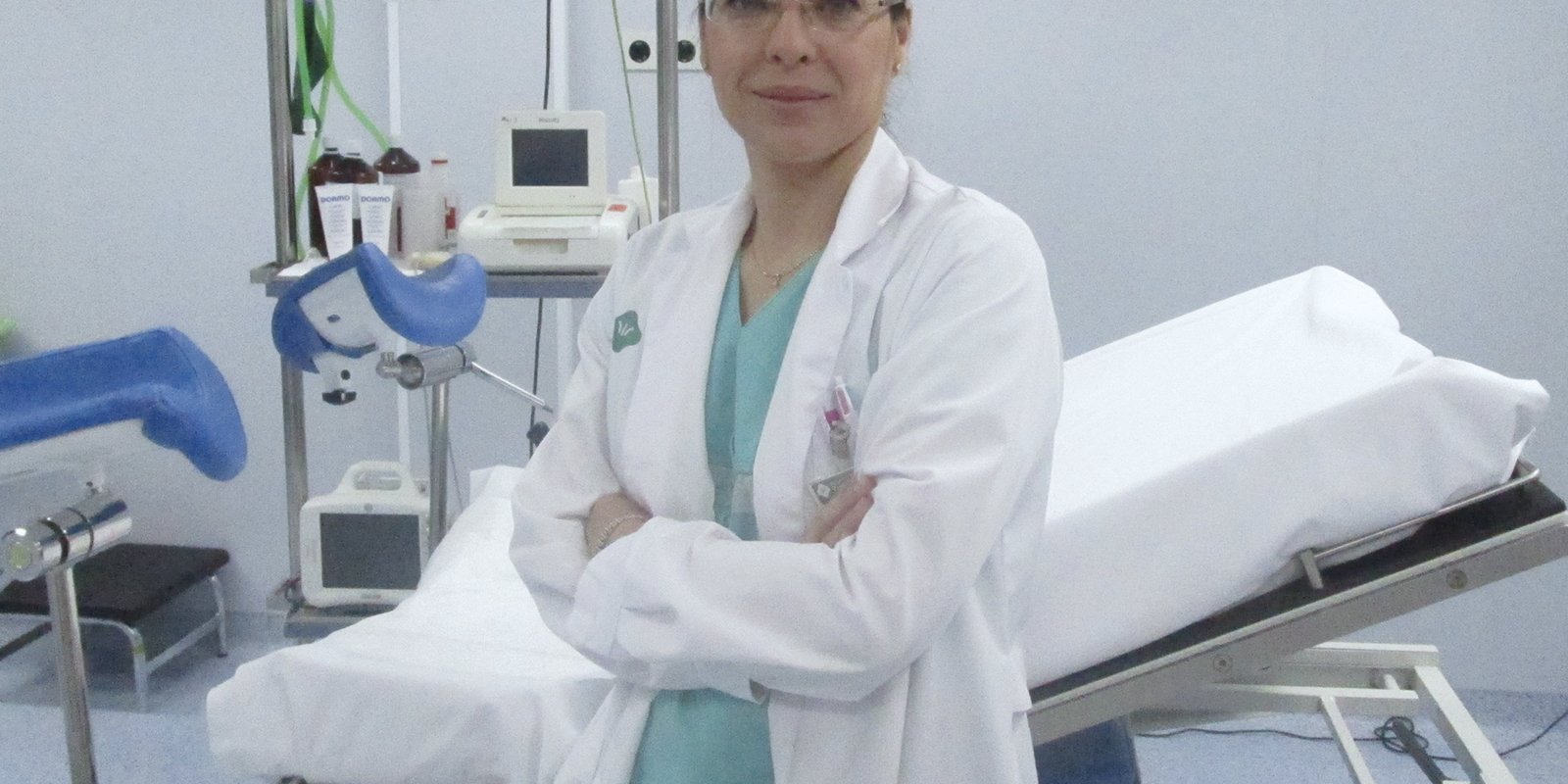DENTAID Oral Health
News for pharmacy professionals
INMA RIU, THE DIRECTOR OF FARMASCHOOL
10 Jul 2019

A pharmacist, social media manager, consultant, director of Saludability —social networks for pharmacies and pharmacists — and founder of Farmaschool, a pioneering school for online training in social networks, digital marketing, management and coaching for pharmacies and pharmacists around the world.
What is the level of digitisation of Spanish pharmacies?
There is an increasing number of pharmacies with presence online, but that does not mean that there is much know-how. There is a big difference between pharmacies that saw the opportunities offered by the digital world at all levels, years ago: branding, promotion, communication, financial return... and others that remain sceptical about it all.
But, in general, pharmacies are getting their act together and that is very positive for the profession in general. We need to gain visibility with people for them turn to us online to solve their doubts on health, via blogs, YouTube videos, etc.
Why is digital marketing important and what benefits can the pharmacy reap?
Pharmacists must look at it in two ways:
1- Focus on their own pharmacy, giving it visibility, sharing knowledge, building their brand, learning what users want, to then offer solutions.
2- A patient-centred approach: what does he/she need, how can I help him/her, how can I serve to guide him/her, for example in pharmacists specialised in sports nutrition, or orthopaedics, child care, dermopharmacy, etc.
In my opinion they should focus on offering something of value to educate patients/online users and decide whether they want to see a return on the time invested via electronic commerce.
What are the main limitations that pharmacies find when they start up on social networks? Which one is the most commonly used or the one that works best for pharmacies?
The biggest barrier is ignorance of how social media functions, along with the concern about the “legality” of being online, i.e. whether the pharmacy might be infringing regulations. In terms of social networks, Facebook is still the social network with the most users, so it is the one that works best in terms of interaction, but without a doubt Instagram is closely at its heels.
Sometimes pharmacists don’t know what to focus on. I mean, with four basic tools —free in most cases— you can see the interaction generated by your online presence. For example: Metricool gives you the monthly growth/interaction data of most of your social networks, plus that of your blog if you give it access.
Google Analytics lets you know how visits to your website are doing and where your traffic is coming from, so you can decide if you should focus your effort on one social network or another. The statistics tab for each of the social networks also helps you see if you should increase/reduce a certain type of content that works better or worse than another.
Then you need to make assessments. If your strategy only revolves around your social networks and you don’t have a blog to support you, then you must be very active on your networks and analyse them in detail. Remember in any case that social networks are ephemeral, and you should stake on platforms where such content stays around and is “searchable,” such as a blog/website or a YouTube channel.
If your strategy is making social networks a channel to publicise the blog of your online store, then you need to be skilled at producing very high quality content to position it very well, while being active on your networks to generate interest and attract traffic to your blog.
The one that is now doing very well is Instagram, because it is a highly visual social network. As Internet analyst Andreu Veà says, children will consult a visual, non-textual encyclopaedia. We are changing our way of communicating and learning. And that's why Instagram is the network of the moment, where the pharmacy should obviously be.
Based on your experience, what do you think are the keys when it comes to being able to “connect” with patients or end consumers?
There are different ways to connect with them. After years managing pharmacy accounts throughout Spain, we have seen that there is something all pharmacies have in common, which is the counter as a point where to initially “capture” followers (raffles, word-of-mouth, etc.), and then on to the digital world to grow. We have also seen that depending on the province, there will be more or less active people, and then the different recurring kinds of online profiles: those who leave comments everywhere, those who always direct message to ask question, those who are continually talking/replying online and then go quiet at the pharmacy, and so on...
To connect with users/patients, the important thing is to be yourself and to offer content that educates and entertains them and that allows them to learn. A clear example of this is, for example, Marián García, pharmacy reference/communicator, who talks about health news, who educates, teaches, talks about things that interest users, makes people laugh,... another example is Sergio Espinar, a leader in sports nutrition,…
And what’s very important, we need to let people know at the point of sale that we are online. For example: “Have you seen our latest blog post?” “Our Instagram post explains how to apply this or that.” You also need to carry out joint initiatives with other media/local groups/bloggers, and so on... and it really does work.
You set up Farmaschool, a training platform for pharmacists that offers online courses in 4 major areas: Dermopharmacy, Team Coaching, Pharmacy Management and Social Networks. What advantages can online training offer over traditional —i.e. classroom— training?
Farmaschool emerged in response to the high demand I got throughout Spain for training on digital issues; as I could not always get to where they wanted me to go, I launched the online platform, which is now doing very well, with over 5,700 students, mainly in Spain but also in other countries in South America, in Sweden, France, Italy, Portugal.
Users receive training on the pharmacy subjects they are interest in, wherever they want and however they want. There are a lot of people who suffer insomnia! Or who take advantage at 2 o'clock in the morning to review useful topics for their daytime job. That would be impossible in person. It lets you take advantage of time on duty, the commute to work, long trips, etc.
Which courses are most in demand and why?
The most popular are management and dermopharmacy. We will be incorporating new categories as we establish more strategic alliances with laboratories, so I hope to increase the variety of courses most in demand by students. Users basically need to train in areas that increase their knowledge —learning for pleasure— and that allow them to increase the profitability of their pharmacies —helping them to improve their advice-giving and to sell more.
Why is continuing education important?
To be able to offer better health advice and the right product for a user/patient, it is essential to be well trained. Continuing education should be compulsory, as is the case in other countries like England.
What is the future of training in the pharmaceutical sector?
I think it is important to differentiate between very technical training in pharmacology, and parapharmacy training. Classroom training is more popular than online, because of interaction, networking, etc. but online webinar formats, courses etc. will gain considerable importance, especially in regions furthest from big cities.
How do you think digital marketing will evolve for pharmacies?
I'm seeing considerable professionalisation in digital communication at pharmacies that are also staking strongly offline, with spectacular, very attractively designed pharmacies. These pharmacies see social networks as an investment, not as an expense or a waste of time. And that is very positive for everyone.
Do you think training in oral health and hygiene is necessary for pharmacy staff?
It is essential. The dental category carries considerable weight at the pharmacy, so it is very important to keep up-to-date and learn about the most suitable products. It’s a category in which cross-selling is very easy, where you can educate consumers, where you can communicate via social networks, and there is so much counselling to offer at all stages of life: for babies, children, adolescents, for orthodontic patients, pregnant women, those with implants or dentures, and also supplementary information per pathology: dry mouth, canker sores, cancer patients... With the power of imagination, good dental training and a good communications plan, the world is your oyster!
RELATED ARTICLES

20 Dec 2017
AINHOA LIAÑO RODRÍGUEZ GYNAECOLOGY/OBSTETRICS NURSING SPECIALIST (MIDWIFE)
“BY CARING FOR THEIR GUMS AND THEIR DENTAL HEALTH, PREGNANT WOMEN ARE PROTECTING THEIR BABY’S HEALTH” Ever since childhood, Ainhoa Liaño has witnessed…

01 Jun 2017
LEOPOLDO ABADÍA PROFESSOR, AUTHOR & RENOWNED BLOGGER
Leopoldo Abadía, a former professor at IESE business school, shows his warm engaging nature when he speaks to us about his role as a writer and a…

01 Feb 2017
DR. JUAN JOSÉ GÓMEZ DOBLAS. CARDIOLOGY SPECIALIST AND MEMBER OF THE SEPA-SEC WORKING GROUP, SPONSORED BY VITIS® GINGIVAL & PERIO·AID®
“DISSEMINATING MESSAGES ON HEART-HEALTHY LIFESTYLES THROUGH THE PHARMACY CAN HELP PREVENT CARDIOVASCULAR AND PERIODONTAL DISEASES” Renowned…
Sign up for the DENTAID Oral Health newsletter
Sign up for the newsletter